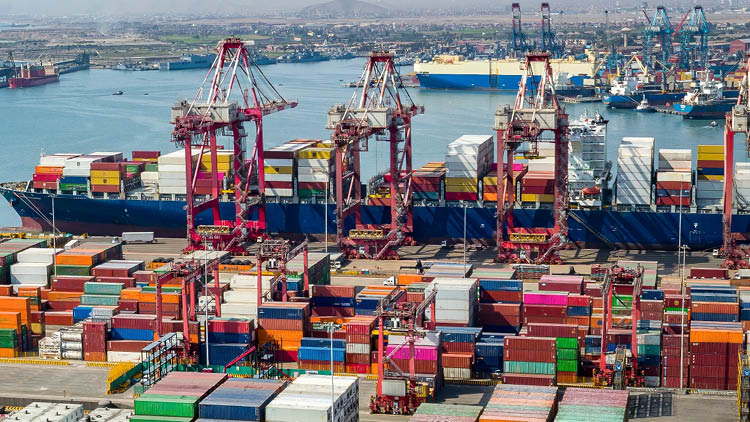Background
With continued developments in US trade policy, please see this week’s key updates in our latest round-up on tariffs, global tax and beyond.
The week in summary
Individualised Country Specific Tariffs Announced
On Monday 7 July, President Trump signed an Executive Order adjusting the deadline for the imposition of “reciprocal tariffs” from 9 July to 1 August. This extension allows time for countries to continue negotiations with the US to conclude a trade deal. In conjunction with this, President Trump issued letters to 14 countries indicating the increased rate of duty (up from the 10% baseline currently in place) which will take effect on 1 August. It is expected that President Trump will issue further letters over the course of Tuesday and Wednesday.
In April, President Trump introduced a base tariff rate of 10% on most countries, with additional duties reaching up to 50%. However, he postponed the implementation of all but the 10% base rate until July 9, effectively granting countries a three-month grace period.
For those countries which received letters on Monday, the rates which will take effect from 1 August are as follows;
Country |
1 August Rate |
Original Liberation Day “Reciprocal Rate” |
Change + / (-)
|
|---|---|---|---|
Japan |
25% |
24% |
1% |
South Korea |
25% |
25% |
- |
Malaysia |
25% |
24% |
1% |
Kazakhstan |
25% |
27% |
(2%) |
Tunisia |
25% |
28% |
(3%) |
Bosnia |
30% |
35% |
(5%) |
South Africa |
30% |
30% |
- |
Indonesia |
32% |
32% |
- |
Bangladesh |
35% |
37% |
- |
Serbia |
35% |
37% |
(2%) |
Cambodia |
36% |
49% |
(13%) |
Thailand |
36% |
36% |
- |
Laos |
40% |
48% |
(8%) |
Myanmar |
40% |
44% |
(4%) |
In a key warning to those countries which have received the letter, President Trump has signaled that any retaliatory measures which are imposed against the US will be met with like-for-like action, stating “If for any reason you decide to raise your Tariffs, then, whatever he number you choose to raise them by, will be added onto the rate that we charge”.
The reaction from the affected countries has been somewhat muted, perhaps indicating that there is an expectation that deals can be made prior to the 1 August deadline. Japanese prime minister Shigeru Ishiba said some progress had been made on avoiding higher tariffs of up to 35% that Trump had suggested recently, while South Korea’s industry ministry said it planned to intensify US trade talks by 1 August to “reach a mutually beneficial result”.
EU Framework Agreement
In positive news for EU businesses, the EU appears close to agreeing a framework agreement with the US in advance of Wednesday’s deadline. Taoiseach Micheál Martin stated on Monday, following a call with European Commission President Ursula von der Leyen, that he believed a “framework agreement” would be agreed this week on tariffs. He further commented that such a deal "would leave space for further discussions", adding it would create "a deal of clarity".
While such an agreement would certainly be a positive step for the EU and bring some certainty to consumers, the finer details of this framework are still to be confirmed with issues over specific sectors still to be ironed out. Importantly, it is expected that the baseline rate of 10% will remain in place, even where a framework agreement is reached.
Furthermore, it is expected that this agreement would not include any specific derogation for the pharmaceutical industry, which continues to be subject to separate Section 232 investigation by the US authorities, the findings and recommendations of which are yet to be released.
Irish Reaction
Tánaiste, Simon Harris, said that the coming hours will be crucial in advance of Wednesday’s deadline. The Fine Gael leader noted that President Trump is expected to consult with his advisers today stating,
“Even at this late stage, I would urge the US to constructively respond to an EU that wants to find a landing zone to this trade dispute that makes sense for all.”
In a statement, Mr Harris said the EU has worked “intensively” with Washington to find a way forward.
“A mutually beneficial agreement that works for both sides remains the objective for Ireland and the EU, while progress may not be at the stage we would like, at this moment the key priority is that negotiations continue.”
Irish whiskey producers are facing a severe crisis as the ongoing US trade dispute disrupts exports, industry leaders have warned. Dennis O’Flynn, Vice-Chair of the Irish Whiskey Association and Director of Clonakilty Distillery, stated that approximately 90% of Ireland’s distilling capacity has now been suspended due to the uncertainty surrounding transatlantic trade negotiations.
With the EU and US yet to reach a trade agreement ahead of the July 9 deadline, most Irish whiskey distilleries have been forced to pause operations. The United States, which accounts for over half of Irish whiskey exports, remains a critical market for the €1 billion industry.
In April, the White House imposed a 10% tariff on Irish whiskey imports, with President Trump threatening to raise rates to between 20% and 50% if no agreement is reached this week. Irish government officials have expressed concern that the 10% baseline tariff may remain in place even if a deal is struck. O’Flynn warned that such a scenario would pose an unacceptable risk to the future of the sector, stating,
“Even the continuation of the current tariff level would have a deeply destabilizing effect on an industry that has become one of Ireland’s most successful export stories.”
US to Impose 10% Tariff on Countries Aligning with BRICS
President Donald Trump announced that the United States will impose an additional 10% tariff on any country that aligns itself with what he described as the "Anti-American policies" of the BRICS group of emerging economies. His remarks came just hours after the BRICS summit opened in Brazil on Sunday.
In a joint statement released from the summit’s opening session in Rio de Janeiro, BRICS leaders warned that escalating tariffs pose a serious threat to global trade, an implicit rebuke of Trump’s trade policies. Shortly after the statement, President Trump issued a warning via his Truth Social platform,
“Any Country aligning themselves with the Anti-American policies of BRICS will be charged an ADDITIONAL 10% Tariff. There will be no exceptions to this policy. Thank you for your attention to this matter!”
President Trump did not elaborate on what constitutes “Anti-American policies,” leaving the scope of the new tariff threat open to interpretation.
We’re here to help you
Keeping up to date with US trade policies, trade agreements and new and existing tariff reviews which may lead to further tariff measures is crucial to assessing the risk to your supply chain and the impact these tariffs may have. Understanding your product portfolio and the impact that tariffs may have on your imports is an important first step. We are here to support your business with this analysis and navigating these choppy waters.
Specialist Tax Services
Helping businesses navigate risks and realise opportunities.
Contact us













Menu